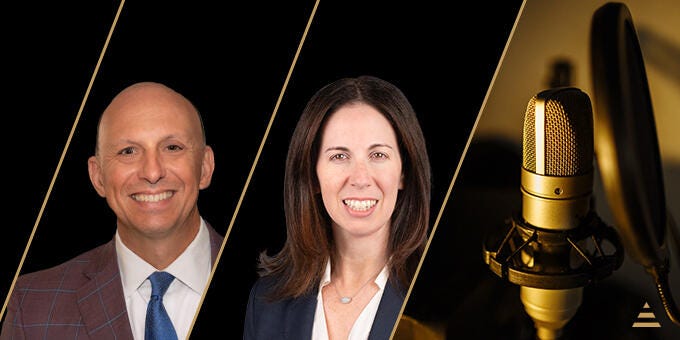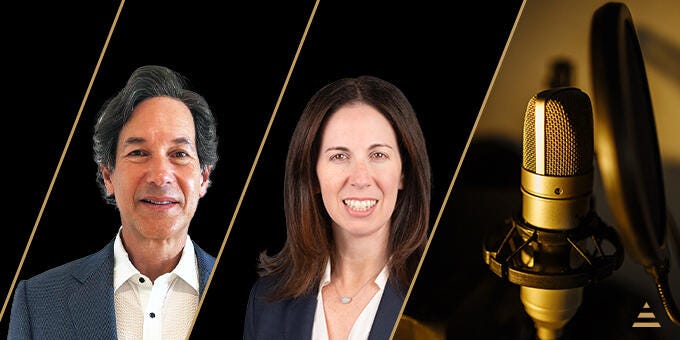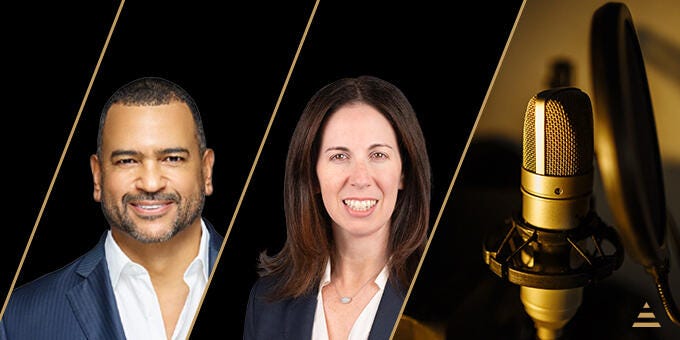Venture Capital Investing in Food & Beverage Companies
- Published
- May 29, 2025
- Share
In this episode of EisnerAmper's Engaging Alternative Spotlight, Elana Margulies-Snyderman, Director, Publications, EisnerAmper, speaks with Nathaniel Rogoff, Co-Founder, Hall Street Ventures, a venture capital fund that invests in high-growth food and beverage companies leveraging the relationships the firm built through Hall Street’s 3PL business, a 100+ year old cold storage and logistics hub in Brooklyn. Nathaniel shares his outlook for investing in the food & beverage space, including the greatest opportunities, challenges and more.
Transcript
Elana Margulies-Snyderman:
Hello, and welcome to the EisnerAmper Engaging Alternatives podcast series. I'm your host, Elana Margulies-Snyderman, and with me today is Nathaniel Rogoff, Co-Founder of Hall Street Ventures, a venture capital fund that invests in high-growth food and beverage companies, leveraging the relationships they built through Hall Street's 3PL business, a 100-plus-year-old cold storage and logistics hub in Brooklyn. Some of their investments include Crumbs and Splendid Spoon. Today, Nathaniel will share with us his outlook for investing in the food and beverage space, including the greatest opportunities, challenges, and more. Before we dive into the conversation with Nathaniel, don't forget to hit that “like” button and subscribe to EisnerAmper wherever you listen to your podcasts. You can also find us on YouTube at EisnerAmper. Hey, Nathaniel. Thank you so much for being with me today.
Nathaniel Rogoff:
Thank you for having me.
Elana Margulies-Snyderman:
Absolutely. To kick off the conversation, tell us a little about yourself, the firm, and how you got to where you are today.
Nathaniel Rogoff:
Sure. Hall Street Ventures sprung out of Hall Street 3PL, which is a 100-year-old 3PL, right outside the Brooklyn Navy Yard on Hall Street in Brooklyn, and we took the creative name of Hall Street Ventures. The business actually has a really cool legacy. When all of the meats and chicken and frozen items would come in through the Brooklyn Navy Yard, people would come to the facility. It was originally called Kings County Refrigerated, and we have pictures of people picking up their meats and their produce and just ice blocks, in horse and buggy. It's really cool, then in Model T's and seeing it through the years. Our business is really a hub for up-and-coming food and beverage companies. If you are coming out of your garage and looking for a place to have commercial regional storage, you're coming to our facility in Brooklyn. My career has been that of Wall Street, 20-plus years on Wall Street spanning equity research, sales & trading, banking. My partner in the fund, Jeremy Frenkel, who's also the CEO of Hall Street 3PL, has been telling me for a while that he has all these exciting brands in his warehouse and that we should do something with it. After I left Surveyor Capital, I took a look at what he had in his warehouse, and there were amazing brands that most people would've heard of every day. Gotham Greens, you mentioned Splendid Spoon, Van Leeuwen Ice Cream, Crumbs cupcakes, for all those who remember it from the Upper West Side. It was just really cool to see all these young, new brands. We started a fund principally to invest in companies inside our warehouse, and it's been an incredible ride. We've raised about $7 million in capital, made nine investments so far, spanning anywhere from cupcakes to energy drinks to better-for-you cauliflower-crust pizzas. It's really, really exciting to see all these young, diverse founders with these incredible ideas bring it to Hall Street, and we really actually get to see it grow. That's what's so exciting for us.
Elana Margulies-Snyderman:
Well, I loved hearing your journey, Nathaniel. Given your focus on food and beverage investing, I'd love to hear your high-level outlook for the space.
Nathaniel Rogoff:
We're really excited about investing in food and beverage, for a lot of reasons. Chief among them is most people have stopped investing in the space. I think when money was cheap, you had a lot of people that flocked to it because you see these big exits, most recently with Poppi, with Pepsi buying them. Everyone thinks that every company can have that kind of exit. We know the hard work that it takes. We have unique insight into these businesses. 20% to 30% of their costs are logistics, which we are experts in. The themes that we really like are everything that is fresh now is frozen, right? We're trying to get to a world of less additives, less preservatives and healthier eating. As a result, a lot of what's being innovated in needs to be frozen when it's shipped. It might slack out in your grocery store and refrigerator or just on the shelf, and it has a certain shelf life to it. That's really why we think that there's going to be exponential growth in this sector going forward, particularly now with all the talks of tariffs. Most of these businesses are local, locally produced. Most of the packaging here is local. Very few of their raw materials or ingredients come from overseas, so you're not in that tariff haze that the rest of the world is in, so we like that. Third is we think that, as the world wants to eat healthier, whether you're on Ozempic or not Ozempic or loosely taking Ozempic, that everyone is trying to eat better, eating healthier, and that's where we're really focused with our investments.
Elana Margulies-Snyderman:
Nathaniel, more specifically, what are some of the greatest opportunities you see in your space and why?
Nathaniel Rogoff:
Sure. We think that small ingredient profiles or clean ingredient profiles. Our cauliflower company, for example, Dare To Be Different, has four ingredients on the back of their package, versus some of the competitors that have 40. You may not necessarily need to reinvent the category, but we think cleaner, simpler ingredients is what the consumer is looking for. That's one place that we think is very exciting. Beverage is another place that there's always innovation. We've made two investments in that space. One in the non-alc sector, which is HOP WTR, a leading non-alcoholic beer. It tastes incredible. We think non-alcohol is here to stay, whether you're what they call sober curious or during the week just want to have less calories, or you really just want to have a good time without any of the side effects of alcohol. We think that is here to stay, no matter what the big alcohol firms, companies, would say. On the energy side, we invest in a company called Joggy, which is called a cleaner energy drink that mimics a runner's high, no artificial sweeteners, no additives. Things like that we think are very exciting. We also have a soft spot for nostalgic foods like Crumbs cupcakes, where we think innovation is key. You can take an older ... you know, baked goods have been around forever. What Crumbs is doing with their Colossal Cupcake, I don't know how many of you remember that. You used to order those in the Upper West Side, those massive cupcakes. In the next two weeks you'll see them rolling out in Kroger, which is going to be really exciting. They have this cream-filled cookie which is a great C-store item. Again, innovation, clean labels, things that are good for you. That's where we're focused.
Elana Margulies-Snyderman:
Nathaniel, on the other hand, what are some of the greatest challenges you face in your space and why?
Nathaniel Rogoff:
Sure. I think there's a couple of challenges that really stand out. One is the competition to get on shelf is greater than ever, which requires a lot of capital for a lot of these companies. It's probably more true today than it even was five or ten years ago. I think that's definitely a challenge the space has to go through. The other is, with inflation where it is and just the egg spikes that we had, the consumer is much more discerning about what they're buying, so your ability to get on shelf at a higher price point, we think, is shrinking. That's why if the fewer ingredients you have, the cleaner your label, the more cost-effective your product can be, that's probably going to cut through the noise. That is definitely a challenge for brands, trying to get from your co-manufacturer onto the shelf at a price point that the consumer can withstand. Just overall in the space, I think certainly right now, with tariffs creating this overall malaise in the market, the just ability for larger corporations to make decisions quickly, for grocery stores to commit to new products, people don't really want to rock the boat right now. Best to hunker down and wait and see how this blows over. This too shall pass, as we say, but that's definitely a risk right now.
Elana Margulies-Snyderman:
Nathaniel, we've covered a lot of ground today, and I wanted to see if there are any final thoughts you would like to share with us.
Nathaniel Rogoff:
Yeah. Look, we at Hall Street Ventures are super excited about the future of the space. We're constantly seeing new and innovative brands, people that are looking to invest in food and beverage. Please reach out, and we're happy to talk and talk you through our ideas and what we're seeing in the space, and just be helpful in any way we can. On the operating company side, Hall Street GPL and if you knew an upcoming brand, we're really focused on trying to help them grow and cut through the noise. We really love our small-to-middle-market customers that we can partner with as they grow their businesses.
Elana Margulies-Snyderman:
Nathaniel, I wanted to thank you so much for sharing your perspective with our listeners.
Nathaniel Rogoff:
Thank you so much for having me. This was a lot of fun. I hope to be invited back.
Elana Margulies-Snyderman:
Thank you for listening to the EisnerAmper podcast series. Visit EisnerAmper.com for more information on this and a host of other topics. Join us for our next EisnerAmper podcast when we get down to business.
Transcribed by Rev.com
Also Available On
Engaging Alternatives Spotlight
What's on Your Mind?
Start a conversation with Elana



